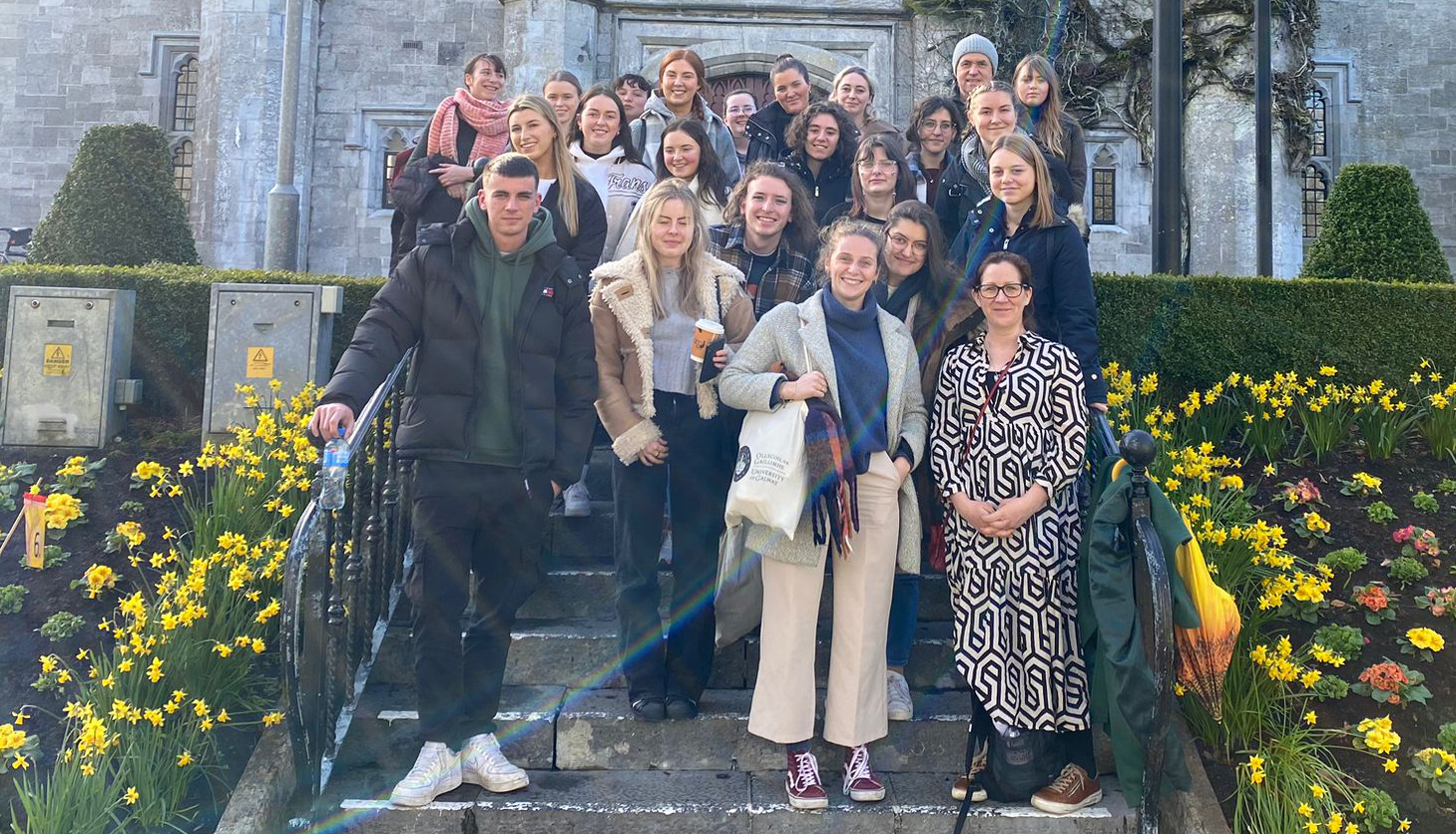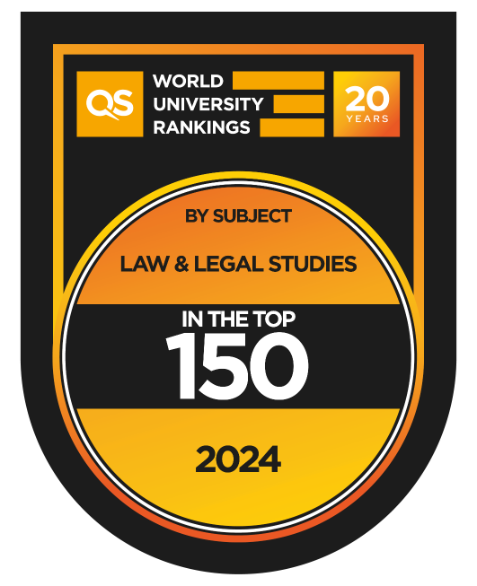-
Courses

Courses
Choosing a course is one of the most important decisions you'll ever make! View our courses and see what our students and lecturers have to say about the courses you are interested in at the links below.
-
University Life

University Life
Each year more than 4,000 choose University of Galway as their University of choice. Find out what life at University of Galway is all about here.
-
About University of Galway

About University of Galway
Since 1845, University of Galway has been sharing the highest quality teaching and research with Ireland and the world. Find out what makes our University so special – from our distinguished history to the latest news and campus developments.
-
Colleges & Schools

Colleges & Schools
University of Galway has earned international recognition as a research-led university with a commitment to top quality teaching across a range of key areas of expertise.
-
Research & Innovation

Research & Innovation
University of Galway’s vibrant research community take on some of the most pressing challenges of our times.
-
Business & Industry

Guiding Breakthrough Research at University of Galway
We explore and facilitate commercial opportunities for the research community at University of Galway, as well as facilitating industry partnership.
-
Alumni & Friends

Alumni & Friends
There are 128,000 University of Galway alumni worldwide. Stay connected to your alumni community! Join our social networks and update your details online.
-
Community Engagement

Community Engagement
At University of Galway, we believe that the best learning takes place when you apply what you learn in a real world context. That's why many of our courses include work placements or community projects.
Criminology, Criminal Justice and Human Rights (LLM)
Course Overview
The LLM in Criminology, Criminal Justice and Human Rights will be delivered by staff from the Crime, Punishment and Rights Research Cluster at the School of Law and the Irish Centre for Human Rights.
The programme recognises the inescapable reality that criminal justice issues cannot be understood without also understanding underpinning human rights law norms and obligations.
The programme has been designed to inspire students coming from either directly from study or from practice to engage in life-long-learning, to uphold high ethical and professional standards and to appreciate the need to advocate for and adopt an evidence-informed and rights-based approach to criminal justice issues.
The programme’s curriculum emphasises inter-disciplinary intersections and research methods training, to facilitate future or enhanced career possibilities in national, regional and international criminal justice agencies, NGOs, inter-governmental organisations and courts.
This programme will foster intellectual curiosity and academic attainment through the provision of high quality, research-led teaching that bridges the disciplines of criminology and criminal justice, and law and human rights. In particular, it will provide students with:
- comprehensive and critical understanding of issues at the forefront of criminal justice focused law, policy and practice by adopting criminological and human rights approaches to study and research.
- confidence to express complex ideas (orally and in writing) and to undertake independent study using multi-disciplinary sources and scholarship.
- tailored training in relevant methodological approaches and dissemination methods.
Course Highlights:
- A diverse range of cross-disciplinary and research-led modules that focus on topics at the intersection of law, criminology, criminal justice and rights, delivered by leading experts.
- Visits to criminal justice institutions including the Supreme Court, Limerick Prison and Cloverhill Remand Prison to provide students with insights into the reality of criminal justice process and penal policy operationalisation.
- Crime, Punishment and Rights Seminar Series will allow students to hear first-hand from guest lectures involved in creating and applying criminal justice law and policy. The seminar series is organised by the Crime, Punishment and Rights Research Cluster at the School of Law which has strong links with (inter)governmental bodies, (international) courts and civil society.
- Crime, Punishment and Rights Film Series at Pálás cinema will showcase movies highlighting issues studied during the programme and provide students with a unique social setting to further explore important topics.
- International Human Rights Law Clinic which provides students with unique practical training on mobilising human rights standards to secure reform, engaging with human rights bodies, at UN and regional levels. Places on this module are limited and are offered on a selective basis.
- Specialist Methodological Skills Training is embedded throughout the course and students can enhance their transferrable skills by taking training in graphic design and podcast production. Students will have the opportunity to use University of Galway CELT studio, a state-of-the-art digital recording space.
- A Minor Thesis is completed by students on a topic of their choice under close supervision by leading experts.
- Career Support is provided through professional workshops concentrating on students CV and interview skills. Careers in Law Week also provides an opportunity to meet potential employers.
- Assessment is primarily through research papers, presentations and minor thesis rather than exams.
 Students from the Imprisonment and Rights module who visited Limerick Prison
Students from the Imprisonment and Rights module who visited Limerick Prison
Applications and Selections
Applications are made online via the University of Galway Postgraduate Applications System. Entry to the course is based on academic achievement as set out above and a personal statement. On occasions, interviews may also be carried out to determine the applicant’s suitability for the course. Places will be allocated on a conditional basis pending receipt of all required and verified supporting documentation.
Who Teaches this Course
Requirements and Assessment
Taught modules will be assessed by either an exam or a written essay (depending on the preference of the module convenor). Students will be given options to receive feedback on formative assessments and presentations in a number of modules. Students will be assessed on their ability to conduct independent research on a specific self-selected topic during their Minor Thesis assessment.
Key Facts
Entry Requirements
The criteria for admission to this programme is as follows:
- An approved Second Class Honours Degree, Grade 1 (2.1, Level 8) in law or in another relevant discipline including political science, social sciences and humanities.
- In exceptional circumstances, an applicant holding a degree in another discipline or a degree of less than an approved Second Class Honours Degree, Grade 1 (H2.1) standard may be considered where they have relevant professional experience in law.
- International students should refer to the country-specific information section of the International Office website.
Additional Requirements
Recognition of Prior Learning (RPL)
In exceptional circumstances, an applicant holding a degree in another discipline or a degree of less than an approved Second-Class Honours Degree, Grade 1 (H2.1) standard may be considered where they have relevant professional experience in law or in another relevant subject area such as criminology.
Duration
1 year (full-time); 2 years (part-time)
Next start date
September 2026
A Level Grades ()
Average intake
Unlimited
QQI/FET FETAC Entry Routes
Closing Date
Offers are made on a rolling basis.
NFQ level
Mode of study
ECTS weighting
90
Award
CAO
Course code
Full-time: 1ML32; Part-time: 1ML33, 2LML33
Course Outline
Course and module offerings and details may be subject to change.
The programme can be completed in one year full-time or two years part-time. The 90-credit programme will involve a module combination of:
Compulsory module 10 credits + Core modules 30 credits + Optional modules 20 credits + Minor Thesis 30 credits
Compulsory Module
Criminology, Criminal Justice and Human Rights (10 credits)
The objective of this module is to establish the cross-disciplinary focus of the post-graduate specialisation and create a strong intellectual and social identity for the LLM cohort from the first week of the programme. This module will ground the programme by focusing on topics located at the intersection of criminology/criminal justice and human rights, provide socio-legal and criminological skills training and minor dissertation preparation advice.
Examples of Core Modules (Select 30 credits)
- Policing, Security and Rights (10 credits) This module will introduce students to models of policing and security, focusing on the questions of public order security, the relevant rights frameworks and critical criminological and legal scholarship in this field. Part of the assessment for this module will be based on producing a podcast.
- LW5214 Imprisonment and Rights (10 credits)
- LW439 Advocacy, Activism and Public Interest Law (10 credits)
- LW508 Minors, Minority Groups & the Criminal Justice System (10 credits)
- LW493 The Criminal Jury (10 credits)
- LW575 Crime and Disorder (10 credits)
- LW485 Sentencing and Penal Law Policy (10 credits)
- LW5117 International Human Rights Law (10 credits)
- LW5122 International Criminal Law (10 credits)
- LW538 Transitional Justice (10 credits)
- LW525 Counter-Terrorism and Human Rights (5 credits)
- LW530 Procedure Before International Criminal Courts (5 credits)
Optional Modules (20 credits)
Students may select 20 credits of modules from the list of core modules, or they can opt to take any of the modules offered by the School or the ICHR, or a mixture of both, such as...
- LW483 Advanced Legal Research & Method (10 credits)
- LW5110 Human Rights Law Clinic (10 credits)
- LW471 International Humanitarian Law (10 credits)
- LW5121 Transnational Lawyering (5 credits)
- LW5124 Climate Justice (5 credits)
- LW5116 Gender and Human Rights (10 credits)
Minor Thesis
Dissertation (30 credits)
Why Choose This Course?
Career Opportunities
This LLM programme was developed following consultations with a range of potential employers in this field. It has therefore been designed to equip graduates with the essential skills and knowledge they need to pursue a successful national or international career within the fields of criminology, criminal justice and human rights. Graduates may opt to pursue work in legal practice, policy development, advocacy or research in criminal justice broadly or focus on particular careers paths such as with prison or police services, or with regional or international organisations or courts.
Potential employers who hire experts within these fields include national organisations like the Director of Public Prosecutions (DPP), the Policing Authority, Irish Penal Reform Trust, the Irish Prison Service and the Department of Justice. Careers paths are also possible with international organisations such as the Council of Europe and the United Nations and with international criminal courts and tribunals. Students who have completed the specialised modules led by recognised experts, completed tailored methods and dissemination training and engaged in independent research in timely topics will be highly appealing to a wide-range of employers.
Who’s Suited to This Course
Learning Outcomes
Transferable Skills Employers Value
On successful completion of this programme, students will be able to:
- undertake independent research and access a range of legal and criminological sources effectively
- analyse complex texts and evaluate different types of arguments
- construct and present complex criminological and rights-informed ideas in writing
- solve problems based on premises drawn from a variety sources
- communicate arguments in writing, reference sources appropriately and complete projects within set time-frames
Work Placement
Study Abroad
Related Student Organisations
Course Fees
Fees: EU
Fees: Tuition
Fees: Student levy
Fees: Non EU
For 25/26 entrants, where the course duration is greater than 1 year, there is an inflationary increase approved of 3.4% per annum for continuing years fees.
Postgraduate students in receipt of a SUSI grant – please note an F4 grant is where SUSI will pay €4,000 towards your tuition (2025/26). You will be liable for the remainder of the total fee. A P1 grant is where SUSI will pay tuition up to a maximum of €6,270. SUSI will not cover the student levy of €140.
Note to non-EU students: learn about the 24-month Stayback Visa here.
Find out More
Contact Dr Róisín Mulgrew, Programme Director and Lecturer in Criminology and Criminal Justice, School of Law or the School of Law Postgrad Team.











.png)







